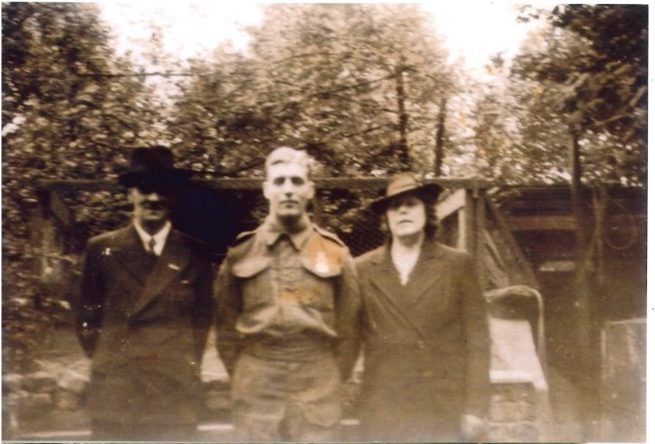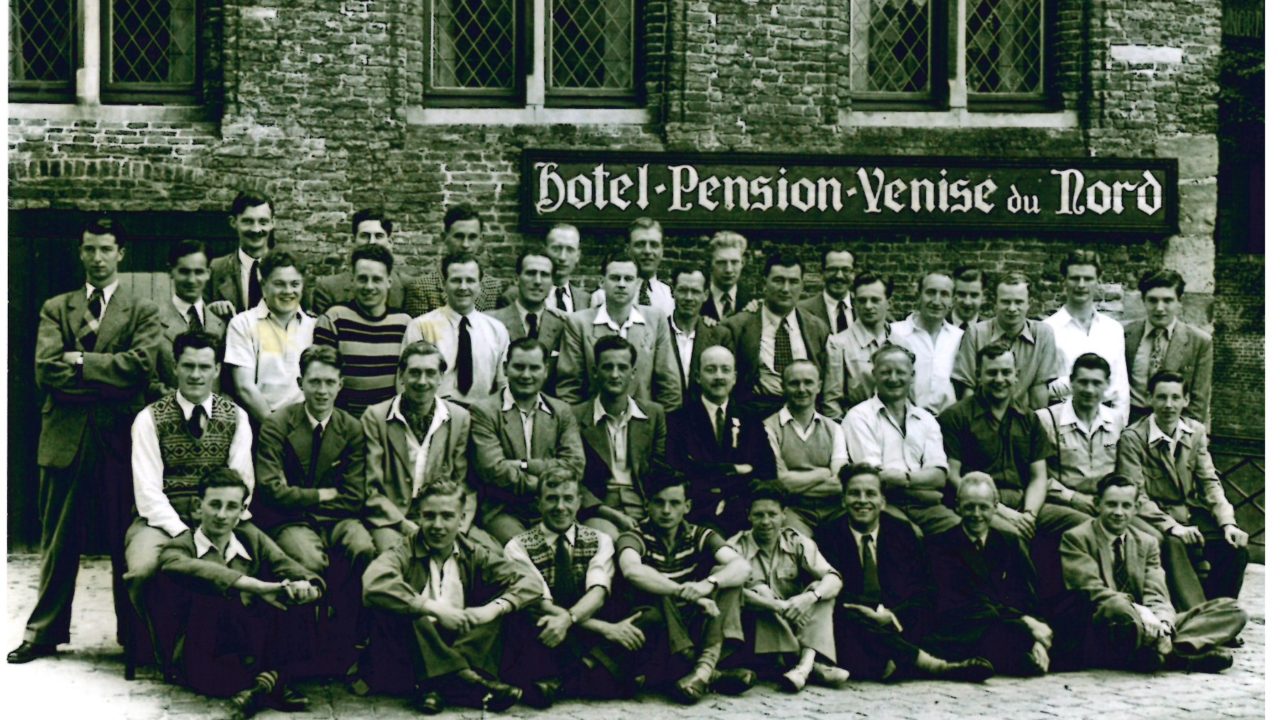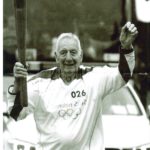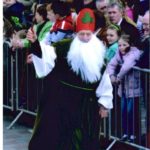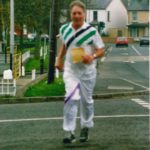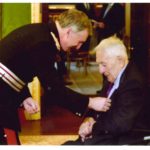Mr Bob Lingwood
The one about the centenarian who made shoes and loves football
Mr Bob Lingwood MM, BEM, MTI from Omagh turned 103 on 19 September 2021. Having lived for 50 years in London before moving to Omagh, he felt his life experience had the best of both worlds. Mr Lingwood described how life in London in his youth was fast paced, with opportunities to experience being close to theatre, museum, education and other facilities. Marrying a girl from Northern Ireland, he was delighted to move here. He found life in Omagh is much more community centered in comparison to London where you didn’t even know your own neighbours. As someone who described himself as “liking people – it’s a gift” he loved living in the area.
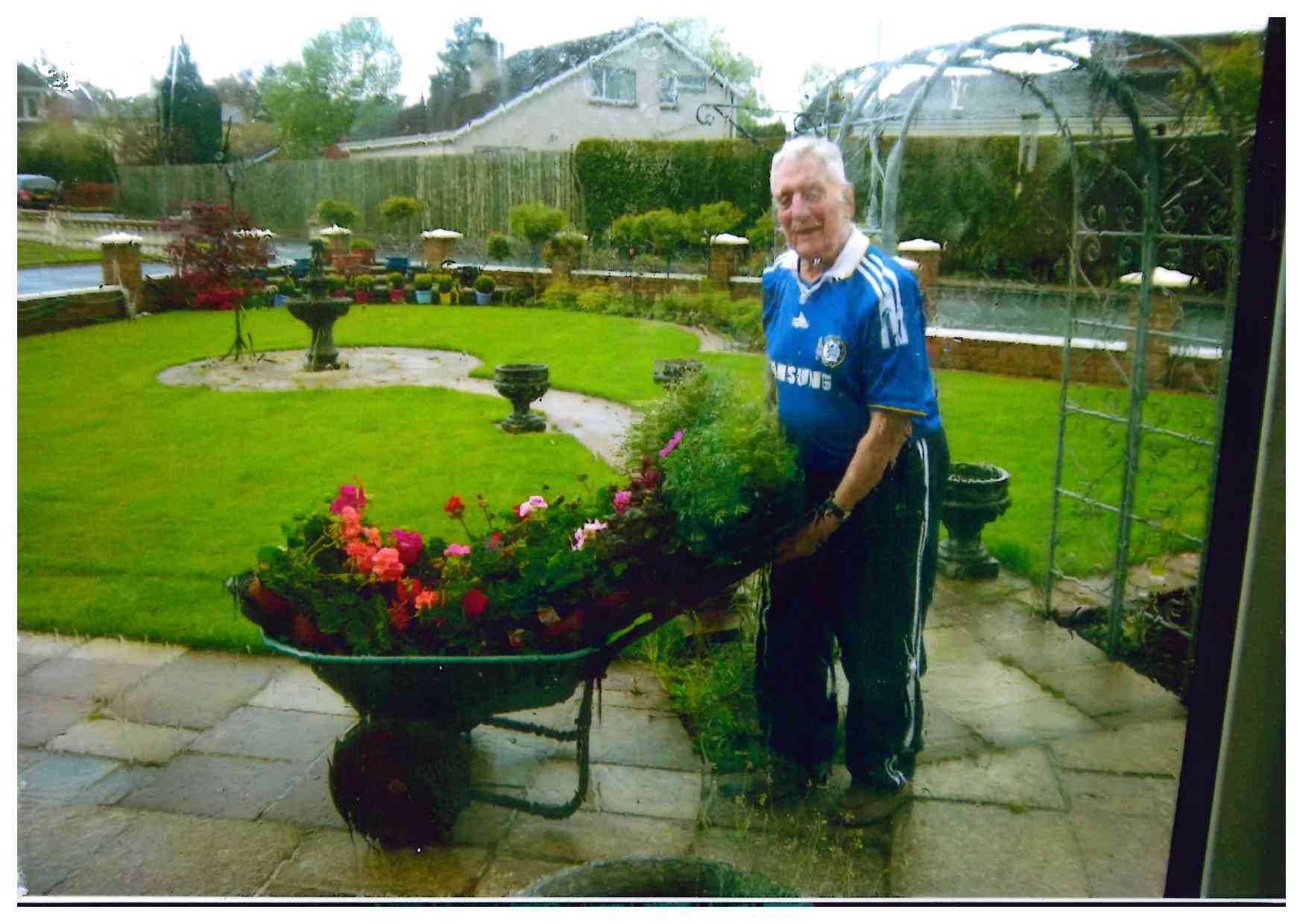
His mum and dad worked for in a gentry house, where his Mum was a kitchen maid, and his Dad a footman. They married in 1916. After the war, as his Dad had no trade, he trained as a shoe repairer. He then opened his own business and in his own words “did good.” His mum never worked after they married. She wanted to, but his Dad would not allow this, which was normal in those times. He described his dad as a “grafter” who also bred dogs as another form of income.
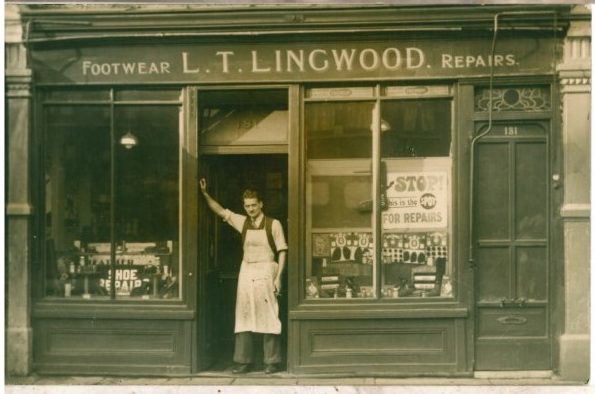
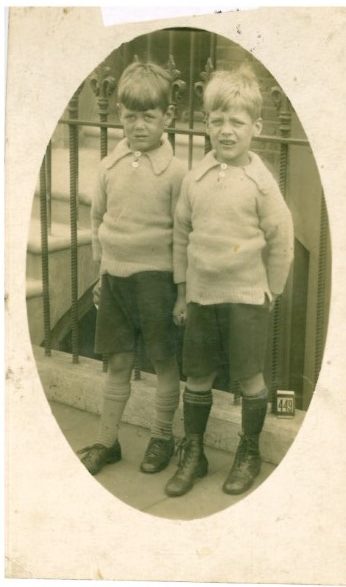
He remembered his early school days in London fondly. Many of those in his class had no shoes, jumpers were knitted and trousers were cut down from older brother’s or father’s trousers.
Growing up in London, Bob was a paper boy and was paid a shilling a week. He also helped on the milk round. He gave his money to his mum, who gave him some back. This extra money was put into a moneybox for special treats at Christmas.
His love of the nearby Chelsea Football Club started at an early age. Bob loved to play football and attend the matches. He often acted as a “Chelsea boy” returning the footballs during matches. He recalled that it was 6 pence entry to a match.
Bob left school with no exams. When he was leaving school at age 14 his parents had an interview with him and his headmaster. Together, they decided he would train to make shoes, attending the local technical college. This was to be the start of a successful career which spanned his life both in London and later in Northern Ireland. His first job was making ballet shoes and delivering them backstage to theatres in the West End.
He remembered his first car, a 1924 Honda that cost £800. He was one of the first batch in London who had to sit a driving test. His Mum loved the seaside and went by car with his Dad to Little Hampton and brought a picnic. Bob, his brother, along with some friends would cycle the 60 miles there and back to join them and play football on the beach.
Following training college, Bob started as a machine operator in a local shoe factory. He quickly climbed the career ladder progressing to making ladies fashion shoes. Bob moved to Northern Ireland and ran a successful factory in Omagh for many years. Here he employed local people. Ahead of his time, he ensured his workers adhered to equality in the workplace, with no emblems displayed that could be deemed sectarian. When he eventually retired at 70, he was headhunted as a consultant by a running shoe company and continued to work for a further 5 years as a consultant visiting many countries around the world.
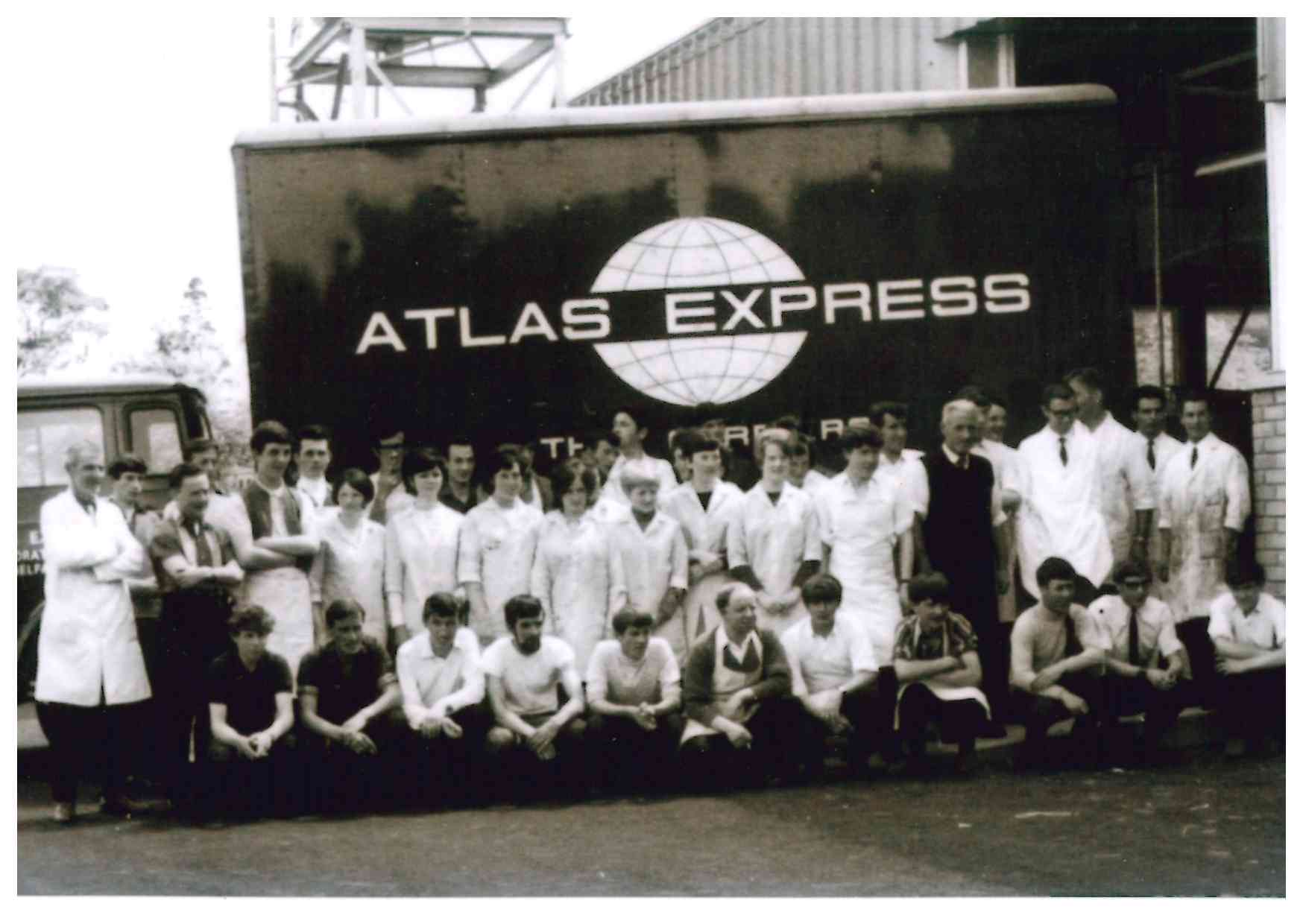
As well as working in shoes Bob joined the Territorial Army in 1936. He joined because he wanted to learn about motor engines.
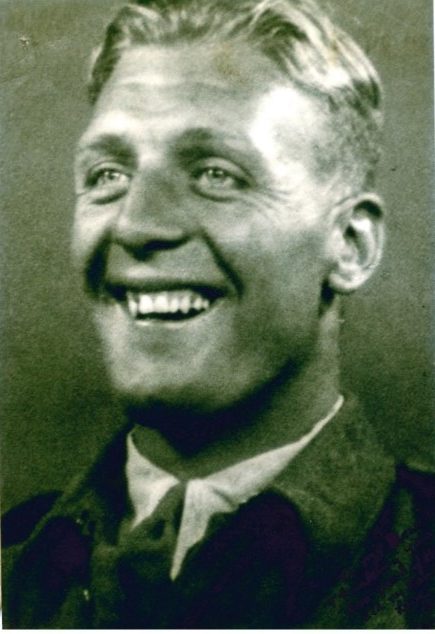
When Bob was called up to the army at aged 21 his role was to lay wires for telephone wires. . His unit was moved to Brussels and had to set up camp. As a Lance Corporal in the Signals he was driving a truck loaded with communication supplies and ten men and was on retreat from the German Army. He was driving around a corner when two heavily armoured German cars opened fire on them. They were fortunate not to get hit and took cover under the vehicle. Bob felt he had no option but to surrender and they were marched as prisoners of war to a small town nearby. At the end of the town, was a river where the bridge had been blown up. As they approached the camp the German soldier guarding them got distracted. Bob and the other prisoners made a run for it back to the river and swam across to the other side. The German soldiers returned and opened fire on the men but they escaped without injury. When they emerged from the river they were met by British army and were interrogated, as they did not have full uniform or identity which was back in the truck. They were taken prisoner until the British army established their identity. This meant Bob was in an unusual situation of having been taken prisoner by both sides on the same day!
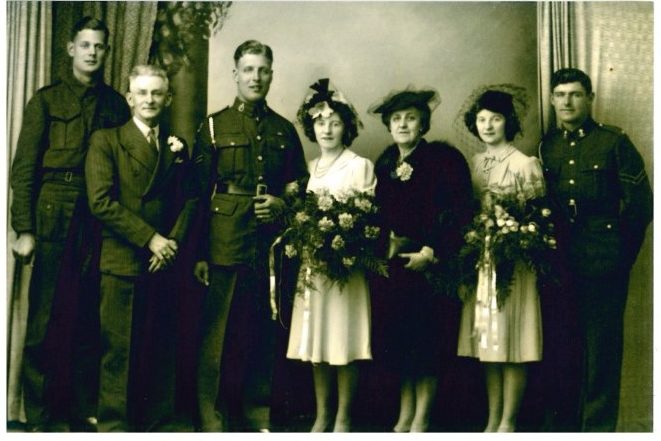
Eventually, Bob ended up at Dunkirk and was wounded. He was admitted to hospital in Dover. On discharge from hospital Bob rejoined his unit and landed in Northern Ireland on 11 July. Confined to camp he vividly remembers sound of bands on 12 July. Based in a camp outside Lisburn he stayed 2 years and integrated within community. The camp was empty every Sunday afternoon as every soldier invited out to tea. He never felt any tension within the community. The soldiers remained under canvas until November when the camp was completed. Bob describes it as living in a quagmire. He met what was to be his future in-laws when cleaning up the old campsite. Asked to tea on the Sunday, then another Sunday which led to Bob courting the oldest girl, Emma. He quickly fell in love and they married in 1942. When Bob asked Emma’s Dad for permission to marry he agreed, however with the stipulation that Bob and Emma married in the Catholic Church and waited to marry until after the war was over.
Whilst they did marry in the Catholic Church they didn’t wait until the end of the war. They left a month after marrying to the Middle East for three and a half years where Bob was stationed. Eventually, they returned to Northern Ireland. Two of his colleagues in his unit married two of Emma’s sisters. Bob and Emma had two children, Denise and Michael; Bob continued to live in Omagh with his daughter Denise.
Since retirement, Bob took an active role in a number of community organisations including Royal British Legion, Omagh Garden Society, Probus, Disability Advisory Group, Churches Forum and Shop Mobility. Bob did not let restrictions due to the pandemic impact on his social life. Continuing to attend meetings and events on zoom for the many groups that he was involved with. He embraced digital connectivity and said that keeping busy with these groups are what made him “tick.
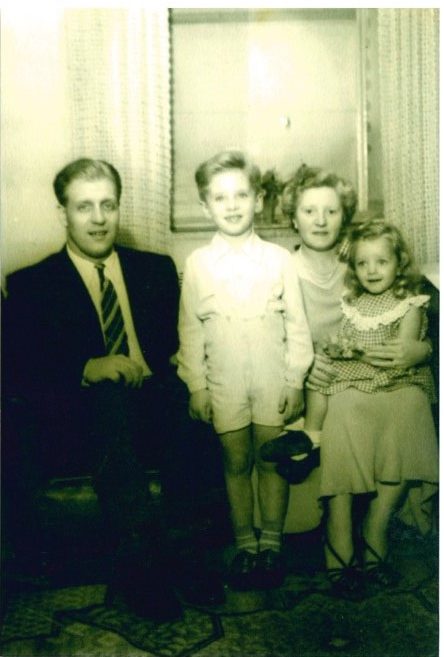
Bob carried the Olympic Torch through Omagh in 1992 and was St Patrick in the local parade. Bob also received the British Empire Medal in the New Years’ Honours list 2018 at age 100 for his charitable work in the community.
Bob exercised all his life, every day. Up until the age of 90 he continued to run. He never smoked or drank and felt his healthy life has been a big contributor to living so long so well.
These stories along with many more will be woven into a final project as part of a wider series of events which the Council has developed. Events and activities will focus on aspects of life in Fermanagh and Omagh over the last 100 years.
Bob LINGWOOD MM BEM MT died peacefully on 12th February 2022 at the age of 103.


